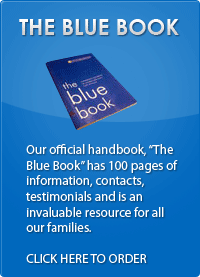Advocacy
Self advocacy within a health context is about having your needs met and feelings acknowledged. Patients and their families can often feel this a difficult role as they try to balance their personal desire for information against the feeling of being a burden to the system.
Cleft New Zealand can coach you with skills and give you an opportunity to practise strong yet fair self advocacy. There are also courses that can help you learn the skills you need to become a competent self advocate.
The best place to start to resolve a conflict with any service provider is the person themselves. Explain what you think the problem is and how you would like it to be put right. Give them the chance to work with you to resolve this and understand further the reasons behind the conflict from another’s perspective.
IEP Individual Education Plan
You may need to continue your child’s advocacy in the education system. An IEP is a chance for you to meet the school and any specialist therapists involved in your child’s development to agree on a plan for your child.
Parent to Parent run seminars on IEPs, but remember very few of our children require this.
You can still be a quiet, polite effective advocate for your child at school by just being there. Get to know your child’s teacher, help them to get to know your child and their unique needs. Have your teacher become your eyes and ears at school and together you will be able to meet any challenge.
System advocacy
Cleft NZ also does advocacy on behalf of our members. This is where we take individual experience and aggregate it into a collective view. Systemic advocacy is always interested in the big picture and how a health system interacts with those it serves. We believe in advocacy that is ‘collaborative’, which means that patients, families and professionals all have valid viewpoints and valuable insights to offer in improving the overall outputs of a system.
Complaints processes
All hospitals have their own complaints procedure. Please refer to your hospital’s website. This is usually a formal process which requires your complaint to be put in writing.
If you are thinking of doing this, there are people who can help you:
- Cleft New Zealand 0800 4 CLEFT ()
- Health and Disability Commissioner
Health and Disability Commission provides a freephone service you can ring to talk through your issue and get advice on how best to move forward. They also have advocates who can support you to resolve a conflict. Finally they have a complaints resolution process with an investigation process. All these services are free.
Your rights
- Right 1: the right to be treated with respect
- Right 2: the right to freedom from discrimination, coercion, harassment, and exploitation
- Right 3: the right to dignity and independence
- Right 4: the right to services of an appropriate standard
- Right 5: the right to effective communication
- Right 6: the right to be fully informed
- Right 7: the right to make an informed choice and give informed consent
- Right 8: the right to support
- Right 9: rights in respect of teaching or research
- Right 10: the right to complain


